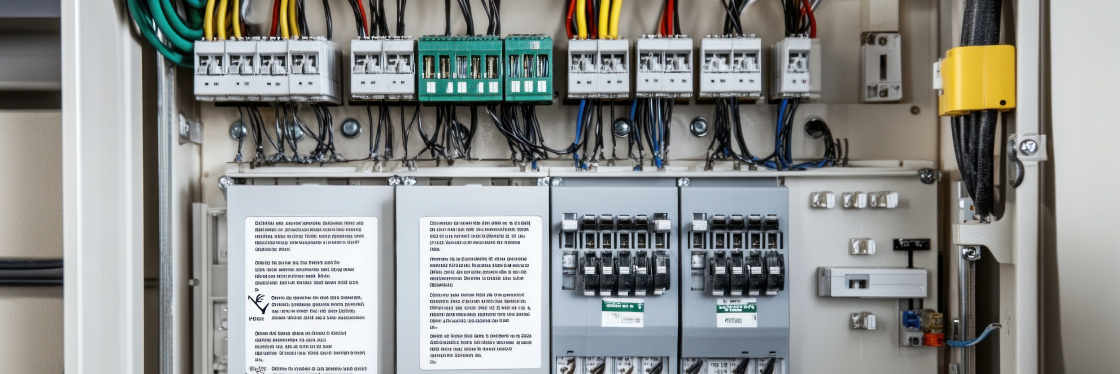RCCB vs RCD vs RCBO vs MCB vs MCCB: Which Circuit Breaker is Right for You?
Table of Contents
- 1. What Are Circuit Breakers and Why Do You Need Them?
- 2. RCCB vs RCD: Are They the Same?
- 3. What Is an RCBO and How Is It Different?
- 4. MCB: The Everyday Circuit Saver
- 5. MCCB: Heavy-Duty Protection
- 6. Key Differences at a Glance
- 7. Choosing the Right Breaker for Your Home
- 8. External Link Suggestions
- 9. FAQs
What Are Circuit Breakers and Why Do You Need Them?
Circuit breakers are essential safety devices that protect your home’s electrical circuits from overloads, short circuits, and electric shocks. They ensure that in the event of a fault, the flow of electricity is quickly interrupted, preventing dangerous accidents.
RCCB vs RCD: Are They the Same?
RCCB stands for Residual Current Circuit Breaker.
RCD stands for Residual Current Device.
Purpose: Both devices protect against electrical shock caused by leakage currents. If someone accidentally touches a live wire or there’s a fault causing electricity to flow to earth, these devices quickly disconnect the circuit.
Function: They constantly compare the current going out and coming back. If there’s a difference (like electricity leaking to the ground or through a human), they trip and cut off the power instantly—often within milliseconds.
In simple terms:
- RCCB is a type of RCD. You might see both terms used interchangeably. Both focus on personal safety, not appliance protection.
What Is an RCBO and How Is It Different?
RCBO stands for Residual Current Breaker with Over-Current:
Purpose: Combines the jobs of an RCCB (protection against electric shock) and an MCB (protection against overload/short circuit). So, it keeps you safe from electrical shocks and also shields your wires from overheating.
Where to Use: Perfect for individual circuits where you want complete protection, such as for kitchens or bathrooms where water contact is possible.
MCB: The Everyday Circuit Saver
MCB stands for Miniature Circuit Breaker:
Purpose: Automatic switch that cuts off power when a circuit is overloaded or a short circuit happens.
Does NOT protect from shock: It’s designed to protect your electrical equipment and wires, but not from earth leakages or electric shocks.
Standard in Homes: Most homes have MCBs for lights, fans, and other circuits.
Key advantage: Easier to reset than fuses.
MCCB: Heavy-Duty Protection
MCCB stands for Molded Case Circuit Breaker
Use Case: Handles much higher currents compared to MCB. Typically found in commercial buildings, big homes, or workshops.
Features: Protects against overload, short circuit, and is adjustable for different current ratings (can go up to 2,500A and beyond).
Not needed for standard household circuits but crucial for areas demanding higher power capacity like pumps or large machinery.
Key Differences at a Glance
Choosing the Right Breaker for Your Home
| Device | Protects Against | Current Capacity | Typical Use | Human Protection | Equipment Protection |
|---|---|---|---|---|---|
| RCCB/RCD | Electric shock, leakage | Up to 100A | Bathrooms, wet areas, homes | Yes | No |
| RCBO | Shock, leakage, overload, short circuit | Up to 63A | Single circuit protection | Yes | Yes |
| MCB | Overload, short circuit | Up to 125A | Almost all home circuits | No | Yes |
| MCCB | Overload, short circuit | Up to 2,500A | Commercial/industrial use | No | Yes (higher capacity) |
For most homes:
-
Use MCBs for basic protection on each circuit.
-
Install RCCBs/RCDs for added protection against electric shocks, especially in wet areas.
-
RCBOs offer all-in-one protection and are ideal for vital circuits like kitchens.
-
Reserve MCCBs for high-demand areas only (e.g., home workshops).
Pro Tips
-
Test your RCD/RCCB monthly: There’s usually a “TEST” button—press it to ensure it works.
-
Avoid mixing brands for better compatibility.
-
Seek a professional electrician’s advice if replacing or upgrading breakers.
External Link Suggestions
Learn more about RCDs and UK regulations:
Institution of Engineering and Technology: www.theiet.org
Detailed guide on types of circuit breakers:
RS Online Technical Advice: www.rs-online.com
Appliance protection and safety:
Schneider Electric Blog: eshop.se.com
Frequently Asked Questions
1. What is the most important circuit breaker for home safety?
An RCCB or RCD is vital because it protects against fatal electrical shocks, especially in wet areas like bathrooms and kitchens.
2. Can one breaker do it all?
RCBOs combine the benefits of RCCB and MCB—giving you both electric shock and overload protection. They’re an excellent all-in-one option.
3. When is an MCCB necessary for a home install?
Only if you have very high-power appliances or a home workshop. Otherwise, MCBs and RCCBs/RCBOs are sufficient for standard homes.
4. How often should I test my RCD or RCCB?
Press the “TEST” button on your device once a month to ensure it works. This is crucial for your safety.
5. Are these devices expensive to install?
Costs are reasonable and installation is a one-time process, but never compromise on safety. Consult a qualified professional for the best solution for your needs.

Nunc consequat interdum varius sit amet. Rhoncus mattis rhoncus urna neque. Bibendum arcu vitae elementum curabitur vitae nunc sed velit dignissim. Non curabitur gravida arcu ac tortor dignissim convallis. Odio morbi quis commodo odio aenean sed adipiscing diam donec.